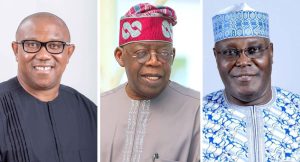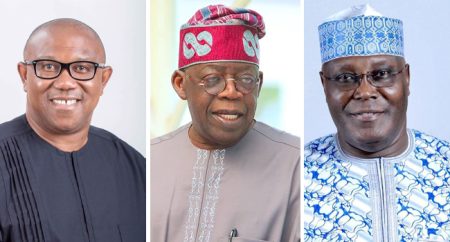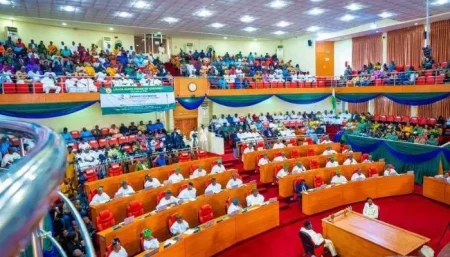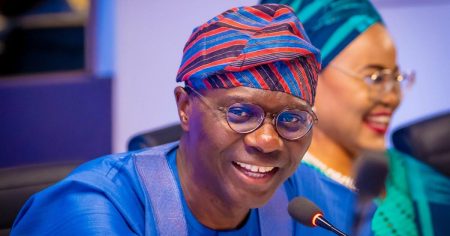Gbadebo Rhodes-Vivour, the 2023 Labour Party gubernatorial candidate in Lagos State, has ignited the political landscape with pronouncements of a burgeoning opposition coalition aimed at unseating President Bola Tinubu in the 2027 elections. Rhodes-Vivour confirmed ongoing discussions among key opposition figures, including former Vice President Atiku Abubakar and former Anambra State governor Peter Obi, to forge a united front against the ruling All Progressives Congress (APC). He emphasized the critical need for a unified opposition, citing the detrimental impact of vote splitting in past elections. This new coalition, he asserted, is the key to challenging the APC’s grip on power and offering a viable alternative to the Nigerian electorate. He expressed confidence that the combined voting power of Abubakar and Obi, under a single political banner, would be sufficient to overcome Tinubu’s support base.
The urgency of this coalition, according to Rhodes-Vivour, stems from what he perceives as the abject failure of the Tinubu administration. He launched a blistering critique of the government’s performance, highlighting the escalating cost of living crisis, which he described as the worst in four decades. This economic hardship, he argued, is a direct consequence of the government’s mismanagement and misplaced priorities. He further lamented the deteriorating security situation across the country, citing alarming statistics on fatalities in both the North and South. Rhodes-Vivour contrasted these dire circumstances with the government’s focus on projects like renovating the vice president’s residence, suggesting a disconnect between the administration’s actions and the pressing needs of the Nigerian people. He framed this as a clear indication of the government’s misplaced priorities and its insensitivity to the suffering of the citizenry.
Rhodes-Vivour’s pronouncements underscore the growing discontent with the Tinubu administration and the increasing momentum towards a consolidated opposition. He revealed that discussions within the coalition have reached an advanced stage, with an announcement of the chosen political platform imminent. This suggests a significant step forward in the opposition’s efforts to organize and present a unified challenge to the ruling party. By consolidating their support base under a single entity, the opposition aims to maximize its chances of electoral success and offer a credible alternative to the APC. The success of this coalition will depend on its ability to overcome past differences, present a cohesive vision for the country, and effectively mobilize its supporters across the diverse Nigerian electorate.
The formation of this coalition represents a potentially significant shift in the Nigerian political landscape. It signifies a recognition among opposition figures that a fragmented approach is no longer viable and that a united front is essential to challenge the APC’s dominance. The success of this endeavor will hinge on several factors, including the ability of the coalition partners to reconcile their differing ideologies and policy approaches, the effectiveness of their campaign strategy, and the overall political climate in the lead-up to the 2027 elections. The coalition’s ability to resonate with the electorate and convince voters that they offer a viable alternative to the current administration will be paramount.
Beyond the national level, Rhodes-Vivour also took aim at the Lagos State Government, accusing Governor Babajide Sanwo-Olu’s administration of prioritizing political self-interest over the welfare of the people. This criticism echoes a broader sentiment of dissatisfaction with governance at both the federal and state levels, potentially creating fertile ground for the nascent opposition coalition. By connecting the perceived failures of the Tinubu administration to state-level governance in Lagos, Rhodes-Vivour seeks to amplify the message of change and present the coalition as a viable alternative across multiple levels of government. This strategy aims to capitalize on existing discontent and mobilize support for the coalition’s broader agenda of political reform and improved governance.
In conclusion, Rhodes-Vivour’s statements signal a significant development in Nigerian politics. The potential emergence of a united opposition coalition, spearheaded by prominent figures like Abubakar and Obi, presents a formidable challenge to the ruling APC. The coalition’s success, however, will depend on its ability to navigate the complexities of Nigerian politics, overcome internal divisions, and effectively communicate its message to the electorate. The coming months will be crucial in determining whether this nascent coalition can translate its potential into tangible political power and offer a genuine alternative to the current administration. The 2027 elections promise to be a closely watched contest, with the fate of the nation hanging in the balance.














